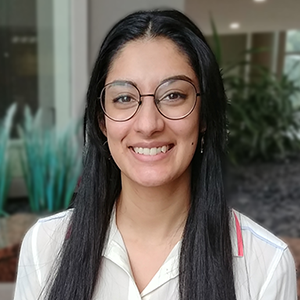ASBMB responds to Trump administration’s proposed restrictions on student and scientist visas
The American Society for Biochemistry and Molecular Biology submitted formal comments on Monday to the U.S. Department of Homeland Security raising concerns about the agency’s proposed changes to visas that allow foreign students and scientists to study and conduct research in the United States.
“The U.S. must strive to attract international students and researchers, and these proposed changes would only dissuade them,” said Benjamin Corb, director of public affairs for the ASBMB. “As we laid out in our comments, if enacted, these changes will damage the U.S. economy and the American research enterprise by depleting the STEM workforce, discouraging and hindering scientific collaboration and reducing American research output and innovation.”
DHS seeks to change how long students and trainees with J, F and I type visas can stay in America. The agency wants to restrict foreign students to four years of study here, but most graduate degrees in the sciences take between five and seven years to complete. The society argues that the visa process must accommodate degree completion.
“Rule changes like these show a lack of understanding and respect for foreign-born students currently studying — and participating — in the American scientific workforce,” Corb said.
The ASBMB’s comments also address the chilling effect of visa restrictions on international collaboration and how study after study has documented that diverse research teams are more creative and productive than ones that are not diverse.
“Adding unnecessary visa restrictions will deter international researchers from coming to the U.S., ultimately resulting in fewer breakthroughs, medicines and scientific products to market,” the society’s comments argue. “If the U.S. aims to continue to be a leader in scientific research and development, then the pace of American innovation must rapidly accelerate. Without an international STEM workforce, it will decelerate.”
Read the full comments here.
Enjoy reading ASBMB Today?
Become a member to receive the print edition four times a year and the digital edition monthly.
Learn moreGet the latest from ASBMB Today
Enter your email address, and we’ll send you a weekly email with recent articles, interviews and more.
Latest in Policy
Policy highlights or most popular articles

Women’s health cannot leave rare diseases behind
A physician living with lymphangioleiomyomatosis and a basic scientist explain why patient-driven, trial-ready research is essential to turning momentum into meaningful progress.

Building a stronger future for research funding
Hear from Eric Gascho of the Coalition for Health Funding about federal public health investments, the value of collaboration and how scientists can help shape the future of research funding.

Councilors advocate for science on Capitol Hill
ASBMB Councilors meet with their elected officials to advocate for basic scientific research funding and training the next generation of scientists.

Hope for a cure hangs on research
Amid drastic proposed cuts to biomedical research, rare disease families like Hailey Adkisson’s fight for survival and hope. Without funding, science can’t “catch up” to help the patients who need it most.

Supporting science through advocacy and community building
ASBMB calls on scientists to take action as funding cuts and policy shifts threaten the U.S. research enterprise, emphasizing the power of community advocacy and persistence in protecting the future of science.

Seven steps to advocating in your home state
Find out how to schedule, prepare for and conduct a productive district office meeting to communicate the importance of fundamental scientific research funding to your representatives.

